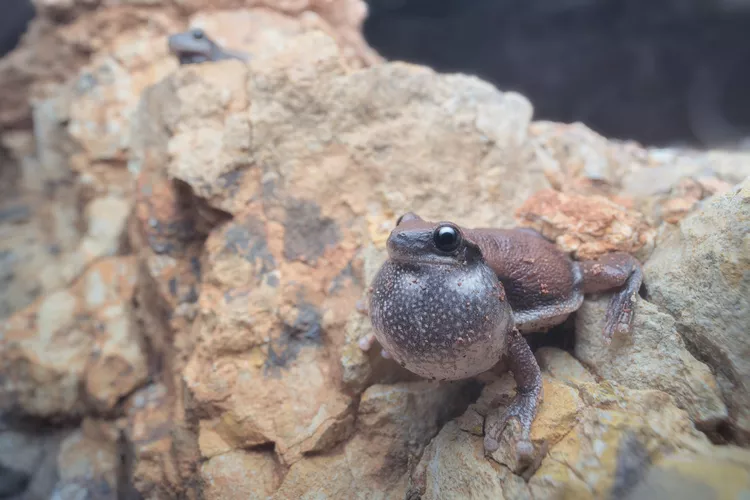
Most animals create sounds that differ from species to species; dogs barking, cats meowing, guinea pigs wheeking and frogs croaking are just some examples. Although these sounds serve a purpose – communicating various messages – they may also be difficult for non-members of that particular species to interpret properly. Here’s some insight into why pet frogs make noise!
Croaking Is Common in Frogs As air moves between lungs and vocal sac, vocal cords cause vibrated airflow which vibrates the vocal cords to produce that distinctive croaking noise that we hear. When frogs croak, their throat or sides of mouth expand while keeping their mouth shut; they appear to stare off while emitting their signature noise which can often be heard over one mile away, especially if there are multiple choruses of them at play at once.
Why Do Frogs Croak? Frogs typically croak for one main purpose – to attract a mate! Male frogs use this noise as a form of communication with female frogs even if they cannot see or hear any.
Croaking is an involuntary behavior of frogs that occurs most commonly during their mating season in spring after rainfall, when female frogs begin laying eggs. After rain has fallen, females lay their eggs more freely resulting in their mating season, and after each rain, wild frogs often emit their trademark croaking sound which your pet frog may also mimic by increasing misting in its enclosure or more active dripper system as well as higher cage temperatures and plentiful food will cause it croak like wild ones do croak just like its wild counterparts would do so to announce danger or assert its territory over its fellow creatures.
How to Stop a Frog From Croaking
Although it is impossible to stop male frogs entirely from croaking, you can reduce its frequency. If your frog is making noises at certain times of day or at night, mist with water at specific intervals. Also allow temperature changes gradually so your frog isn’t subjected to sudden temperature drops that shock its system; gradual reduction of temperatures may convince them that conditions are no longer conducive for females to lay eggs, leading them to stop trying for matings altogether!
Addition of female frogs can often help limit croaking noise in a terrarium with only male frogs, although croaking usually comes only from males. If you want to prevent all forms of noise entirely, opt for caring only for female frogs; females do make some vocalizations but this action typically falls to males alone.
What to Do if Your Frog Is Croaking
While many may find the croaking noise frogs make annoying, it’s essential that they do nothing that might harm them in an attempt to stop. A common method used by homeowners near homes to stop wild frogs from calling is spraying salt water outside to make them stop is harmful and irritating to frogs – this practice should never be done as it can be toxic and irritating for these amphibians.
Reducing croaking may require drastic environmental changes that can be extremely hazardous. Lowering temperature too far may only cause your frog to temporarily estivate, while dropping humidity levels too drastically could dry their skin out and be fatal; humidity is essential to their health and survival as frogs absorb oxygen through their skin as well as water.
As is obvious, do not attempt to silence your frog by holding it too tightly; since frogs croak with their mouths closed, closing its mouth won’t help and should never be done.





